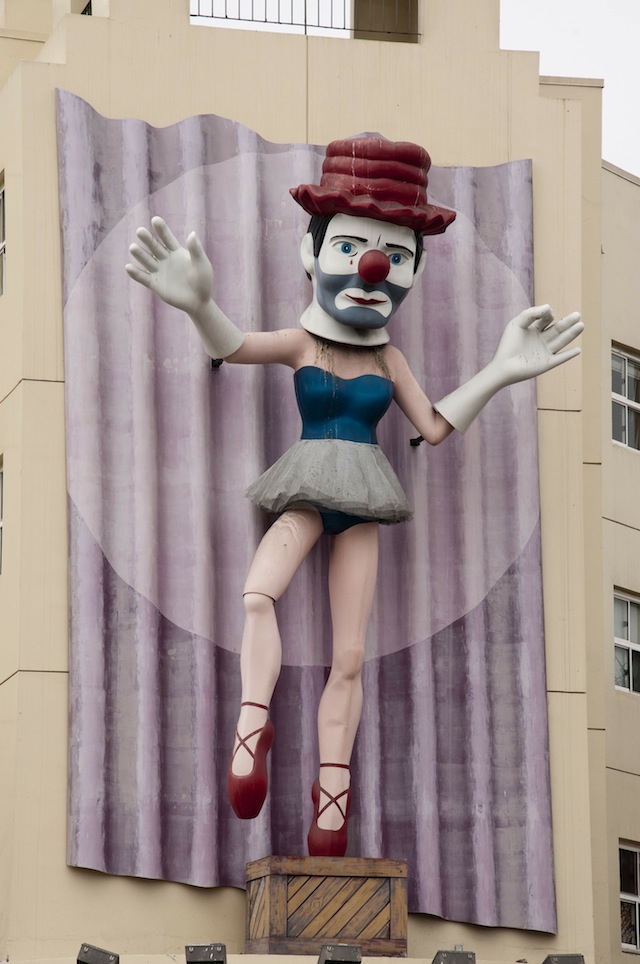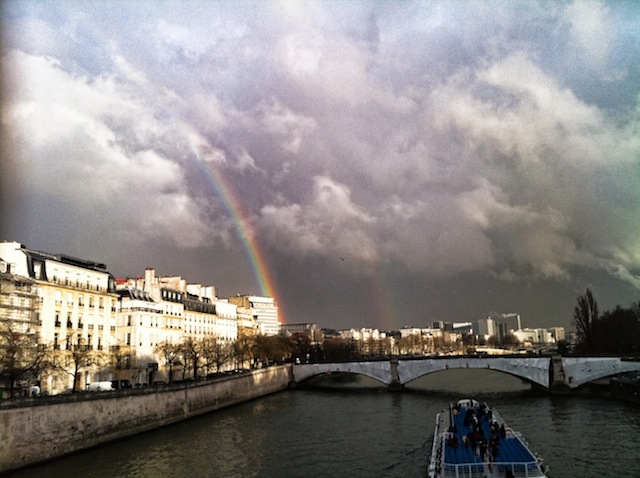Aphrodite's Corner
 06.4.2011
06.4.2011 
Richard’s and my friend, Tristine, was in town last week. In our meandering around Paris, she and I met a warm, intelligent, attractive American woman who had once been married to a Frenchman. We discovered this by asking her why her French was so perfect. One thing led to another and before long we were telling stories. Love stories.
I mentioned my experience with Aphrodite (see the last Paris Play post, “Three Short Stories”) and the list I had made of what I wanted in a mate.
Jo Anne was weighing whether to stay in Paris or to return to the U.S.
What would it take to make you want to stay? we asked her.
Tristine and I had a mutual inspiration: what if I interviewed Jo Anne about her experience living as an American woman in Paris and what she was looking for in a relationship?
And call it Aphrodite’s Corner, Tristine suggested.
And so I did. I asked Jo Anne five questions:
1. How did you come to live in Paris?
2. How has your feeling about living here changed over the years?
3. Anything you want to say about being married to a Frenchman, or being a single American woman in Paris?
4. Have you thought about moving back to the U.S?
5. If you could live anywhere, with anyone, what scenario do you see for yourself? And what would be on your list for Aphrodite?
Here is what Jo Anne said:
In the 9th grade, back in the early ‘70s, a law passed allowing girls to wear pants to school, so I happily discarded my skirts and chose French as a foreign language. The two are linked in my mind as some kind of stepping stone to becoming what my fourteen-year-old brain imagined was a “free woman.”
It has always been a mystery to me exactly why I dreamed of coming to France. It was as if the plans had already been made and I was merely, and quite enthusiastically I might add, following through. Was it the freedom of being so far away from home? Was it the language, the art, or the desire to walk on cobblestones where centuries upon centuries of men walked before me?
I was nineteen in my sophomore year in college. My mother thought a year in France would make me more “refined” and thus, I imagine, a better prospect for one of the “good catches” in our Boston suburb. Little did she know I had decided to make my own catches, for better or for worse, for richer or for poorer.
I fell in love with a Frenchman, became a woman, a mother, and during all this tried desperately to become French…and succeeded! After fifteen years, I lost my accent (almost) entirely and often stumbled over English when speaking to family. Some things were so much easier to explain in French. It was in that language that I became an adult, learned about history, philosophy, politics, motherhood, relationships. And observed my home country through the eyes of Europeans. I had very few English-speaking friends and would go sometimes for months without saying a word in English. I forced myself to speak English to my children but the words they learned were mostly “brush your teeth,” “nighty-night,” and “turn that television off.”
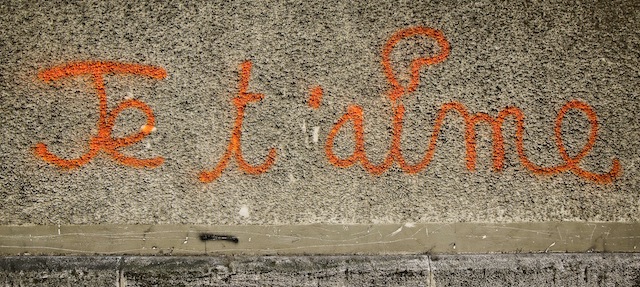
When “je t’aime” started sounding more real than “I love you,” I knew I was losing an essential part of myself. Thus began a long climb back to re-possessing my language and re-becoming an American, with pride.
My job, working first for an international agent, then a French publisher, has helped a lot in that respect. Dealing constantly with English books and contacts, I dropped a lot of my French reading, refusing to read translations of English books or to watch American movies dubbed in French and becoming openly critical of a bad translation of anything English into French.
This struggle to repossess the “American in me” has lasted from the end of my marriage through two other significant relationships with Frenchmen, roughly twenty years, and continues today.
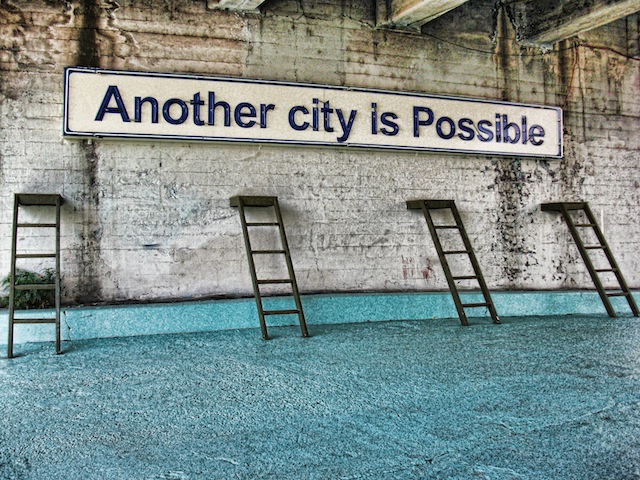
When I was a single mother I thought about returning to live in the USA. I missed my family a lot, but the main thing that kept me from making the jump was taking my children so far away from their father. After all, they were born in France. I just couldn’t be that selfish.
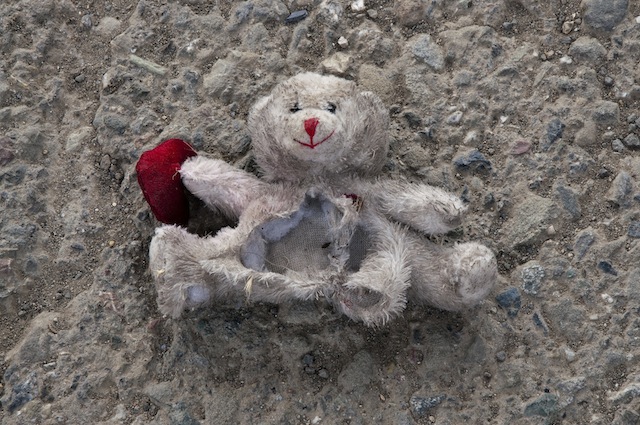
The strongest pull on my heart to return to the USA came in September 2001. A Swedish colleague rushed into my office and said, “A plane crashed into the World Trade Center, check out CNN.” I was stunned for days, months even. I felt I needed to be “home” and realized then and there that I hadn’t lost the American in me after all.
But that American is a strange emotional and cultural hybrid.
Everything truly intimate, although it might be experienced in French, is translated by my heart into English. Despite all the sincerity of a “je t’aime,” I know it won’t reach that tiny compartment in my heart where those words were first recorded, and believed, in English.
I reached France at the outer limits of childhood, still young and naïve, full of dreams and time to make them happen. All of these things were transformed in French. Maturity came in French and was translated into English. Trips home highlighted what was lost in that translation as I tried to convincingly reword my experience to friends and family.
Today, I’ve reeled back in much of the American in me that has unraveled over the years.
Regarding passions, I've always been interested in too many things and envy those who have just one to concentrate on and perfect. I love to read of course and write (poetry, short stories, songs) all for my personal pleasure. I'm still waiting for a great idea to inspire me to write a novel. I enjoy making things with my hands and have dabbled in clay modeling, painting, quilting and all kinds of arts and crafts.
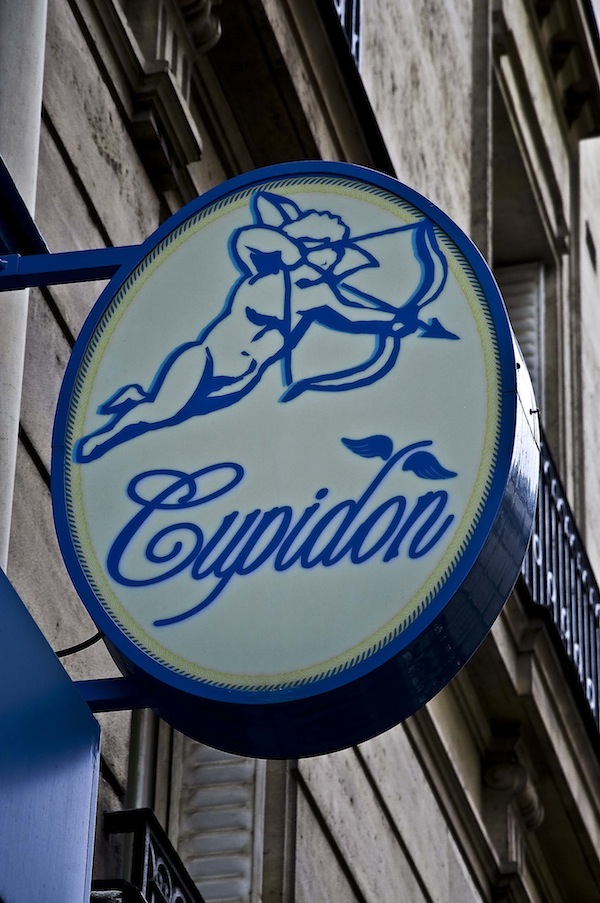
Recently I have taken up archery and find it most enjoyable. I have always been passionate about being a mother, adored pregnancy, and am looking forward to grandchildren (a little further down the line).
I know that I can never, nor would I wish to, erase either side of the French/American me. My ideal life would be in a loving relationship with an American man, living half the time in Paris and the rest of the time somewhere in the beautiful American countryside. A place where all four seasons can be enjoyed to the fullest.
There is no idolization of American men in that, nor excessive criticism of Frenchmen. It’s that I now know the value of a shared cultural experience, and how different to me the word love is from the word amour.
This American man, ideally in his mid-fifties, will have developed a positive philosophy about life and is open to spirituality.
He is kind, attentive, has a generous heart and is protective of loved ones.
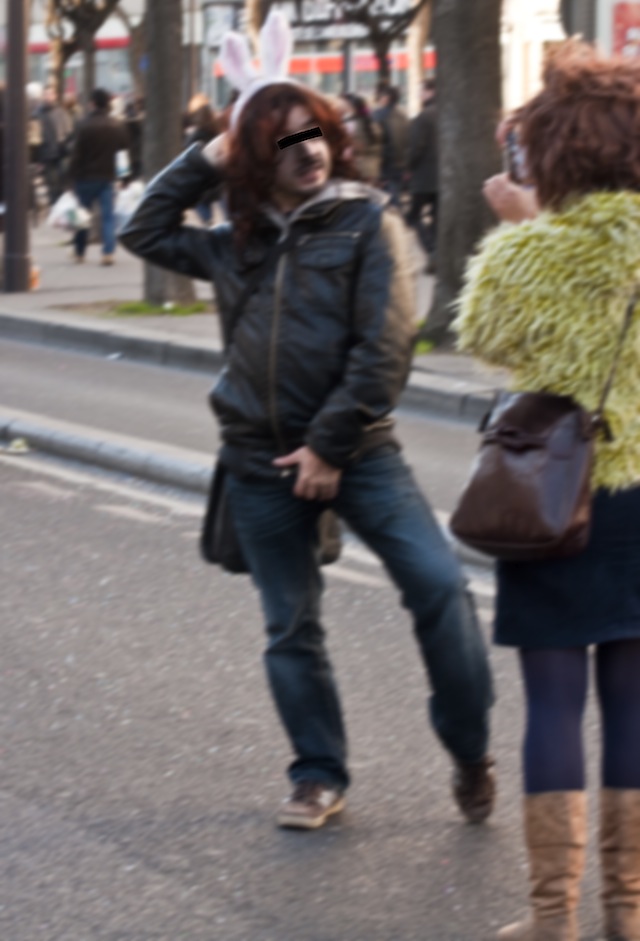
He must have a sense of humor, can be dry, amusingly cynical, but not bawdy unless it’s just the two of us (wink).
Enjoys learning and takes an active interest in our world... culture, politics, ecology, science, history... and is definitely more Obama than Bush.
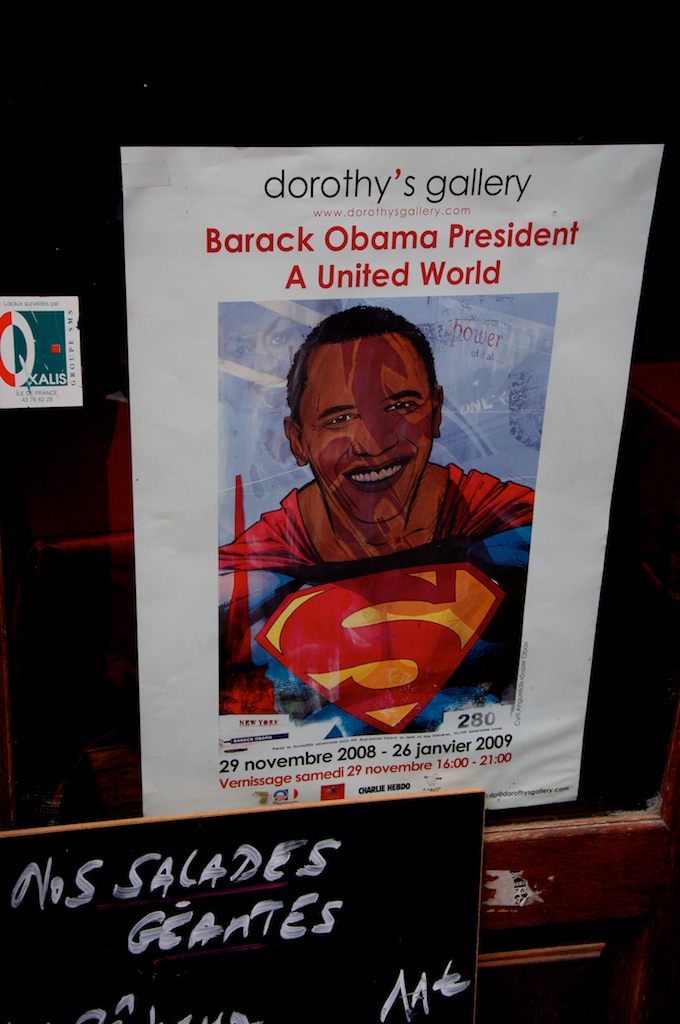
Physically in relatively good shape, doesn’t have to be a marathon runner though, just someone who is interested in feeling good and staying healthy but who knows how to indulge from time to time.
Is capable of self-deprecation, but has strong faith and determination to see things through. Clearly speaking, he has high moral standards and is faithful in every sense of the word.

He of course embraces compromise as a means of moving forward.
Is financially independent.
OK, down here on Earth, I have a job, a teenage daughter to support and retirement is still several years in the future. That said, few things are (as they say in French) “engraved in stone,” and I too am open to compromise.
May I end with a word to our dear Aphrodite?
Dearest goddess of love,
You have been here all along and I had shamefully forgotten about you. Thank the heavens your messenger, Kaaren, has come just at the right time and in a way so totally unexpected that I would be crazy not to act upon this chance you have offered. Please use everything in your formidable power, be it arrows, potions, sparks and roses, to help me recreate a loving relationship, as I am, and have always been,
truly yours,
Jo Anne.
* * * * * *
A final mot from Kaaren: On behalf of Aphrodite, I ask you all, does this sound like you? Or like someone you know? Let me know if it does, and I’ll introduce said male to Jo Anne.



